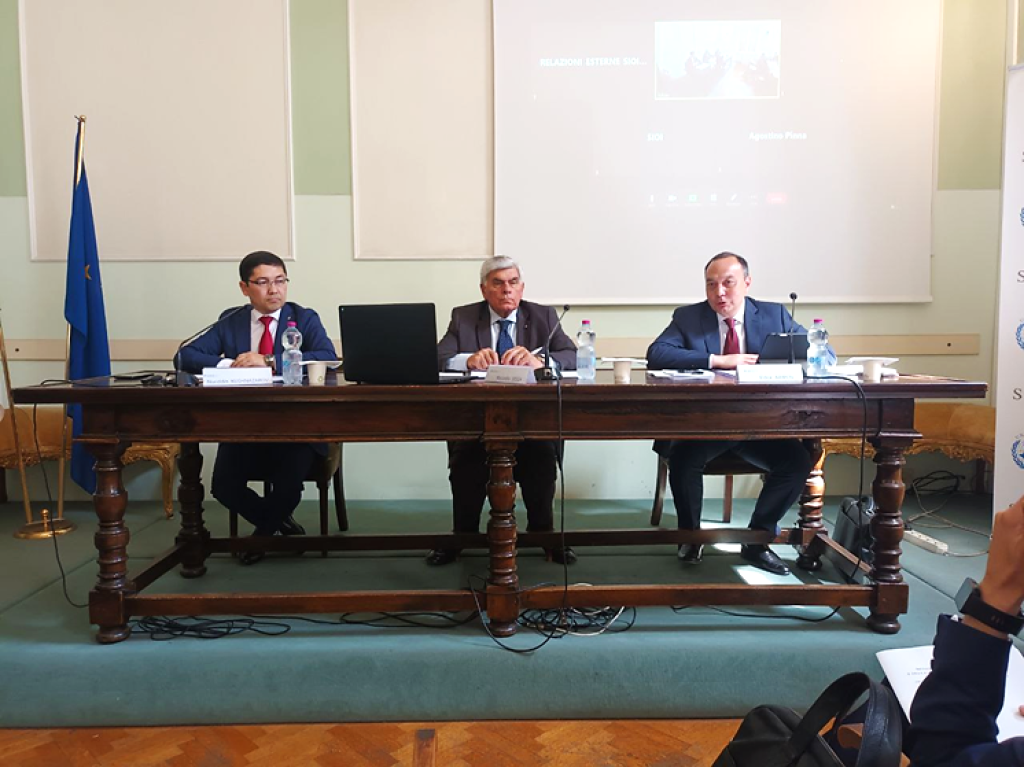Eldor Aripov: Italy acts as a reliable European partner for Uzbekistan, promoting the sustainable and stable development of the country

A delegation from Uzbekistan led by the Director of the Institute for Strategic and Regional Studies under the President of Uzbekistan (ISRS) took part on May 29 in a roundtable discussion on “Uzbekistan and Italy: New dimensions of cooperation”.
The event is organized jointly with the Italian Society for International Organization, one of the country's leading analytical and research bodies working under the auspices of the Italian Ministry of Foreign Affairs.
Representatives of the Ministry of Foreign Affairs, ministries and agencies, leading companies, universities, research institutes, and the Italian media attended it.
A thorough exchange of views on the current state and prospects of interaction between Uzbekistan and Italy in the political, economic, cultural, and humanitarian spheres took place. The EU's cooperation with the Central Asian states was also discussed.
In his welcoming remarks at the event, Eldor Aripov stressed that since the beginning of independence, for more than thirty years, Italy has acted as a reliable European partner for Uzbekistan, promoting the sustainable and stable development of the country.
According to Eldor Aripov, the New Uzbekistan Development Strategy and the tasks arising from the renewed Constitution open up new prospects for deepening and enhancing relations between Uzbekistan and Italy.
Rome fully supports Uzbekistan's reforms. Italian partners appreciate the consistent policy of strengthening democratic institutions in the country, liberalization, and diversification of the economy.
The experts noted that not only in Rome but also in the EU are observing with great interest the large-scale reforms in Uzbekistan, which prioritize, above all, the tasks of ensuring the well-being of the people.
Ambassador of Italy to Uzbekistan, Agostino Pinna, said that since 2017, Uzbekistan had begun an impressive “reform turnaround”. The new constitutional reform has laid even stronger foundations for a market economy: fundamental freedoms and guarantees for entrepreneurial activity are strengthened, and the protection of private property is enhanced.
According to Agostino Pinna, relations between Italy and Uzbekistan flourish in this dynamic and consistently evolving paradigm. For instance, in 2022, trade turnover grew by 32% to €535.4m, making Italy the third major European trading partner for Uzbekistan.
It was stressed that the interest of Italian business in Uzbekistan is reciprocal and steadily growing. In recent years, the number of enterprises with Italian capital has doubled, embracing new sectors such as mining, metallurgy, petrochemical and electro-technical industry, and building materials. As a result, the volume of Italian investments in the last four years has increased sevenfold, from USD 7.1 million to USD 49.6 million.

President of the Italian Society for International Organization Riccardo Sessa noted that Uzbekistan and Italy are centuries-old friends. Long-standing historical and civilizational ties link the two countries. Modern Uzbekistan is considered a key country in the Central Asian policy of Rome. The sustainable internal stability and creative regional policy of Tashkent make Uzbekistan an essential partner in the region.
According to him, Italy's strategic interest in cooperation with Uzbekistan is growing thanks to the cardinal changes. As a result, there is an intensification of inter-parliamentary relations. Contacts are dynamically expanding at the level of ministries and agencies of Uzbekistan and Italy.
Following the roundtable discussion, the parties agreed on further developing expert dialogue and expanding contacts between the analytical institutions of Uzbekistan and Italy.
A Memorandum of Understanding was signed between the Institute for Strategic and Regional Studies under the President of Uzbekistan and the Italian Society for International Organization.
The document provides for establishing cooperation and regular working contacts between the analytical centers of the two countries through joint research projects, organizing forums, workshops, and roundtable discussions on issues of mutual interest.






